The ongoing heavy floods across the UK have focussed minds yet again on how we deal with unexpectedly severe rainfall.
Repair bills for the floods over the Christmas period alone are expected to top £5bn. Much of that sum relates to building damage, but many motorists are also facing big repair costs. After all, an engine that ingests water can be so costly to fix it may be cheaper to write the entire vehicle off.
As a leading car, motorbike and van breakdown recovery service, here at Start Rescue we see first-hand how floods and heavy rain cause thousands of breakdowns each year. In many cases the damage is so severe that it simply becomes an insurance issue rather than a breakdown call-out.
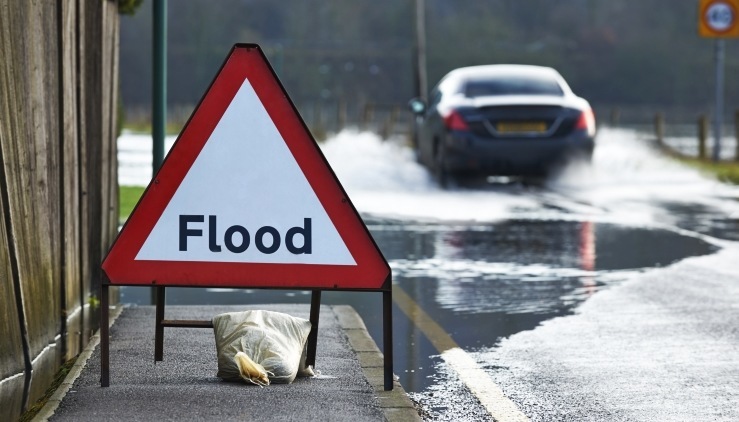
But with the UK expected to face increasingly severe floods in the coming years, what can be done to prevent your car from being damaged by water? And more importantly, what can you do to stay safe on flooded roads and in heavy rain?
Driving through standing/floodwater
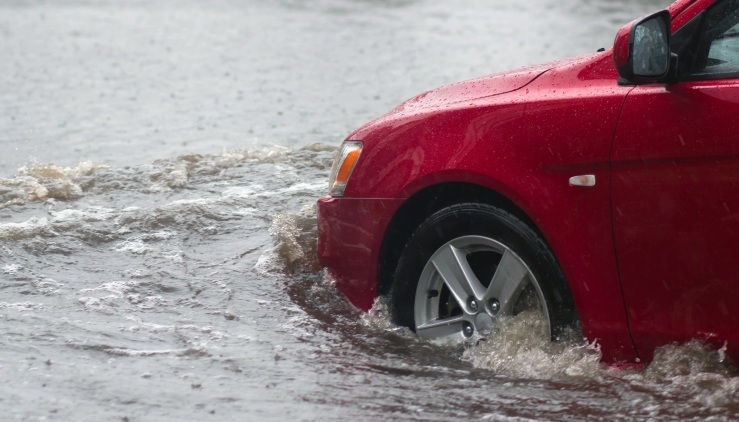
You should avoid driving through floodwater or standing water whenever possible.
Unresponsive steering
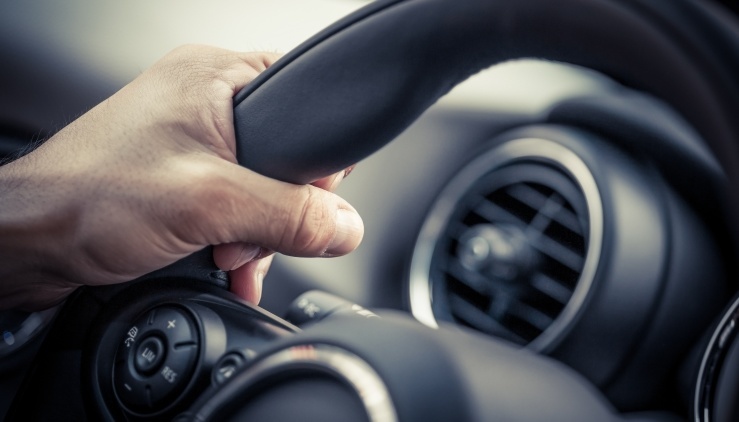
If you must drive through a body of water, you may experience unresponsive steering. If this happens try easing off the accelerator and gradually slowing down.
Engine damage risk from driving through flood water / standing water
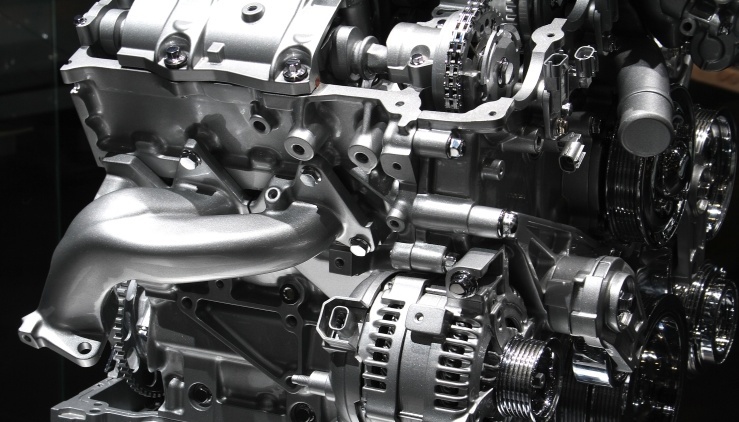
Be sure water is shallow enough to drive through – and be aware that air intakes on some cars are very low down.
Just a small amount of water can cause serious damage to your engine. Because water doesn't compress, the engine pistons stop dead, which will damage or break a connecting rod.
Even if your intakes are above the water line, driving too fast may cause your engine to ingest water.
Catalytic converter damage risk
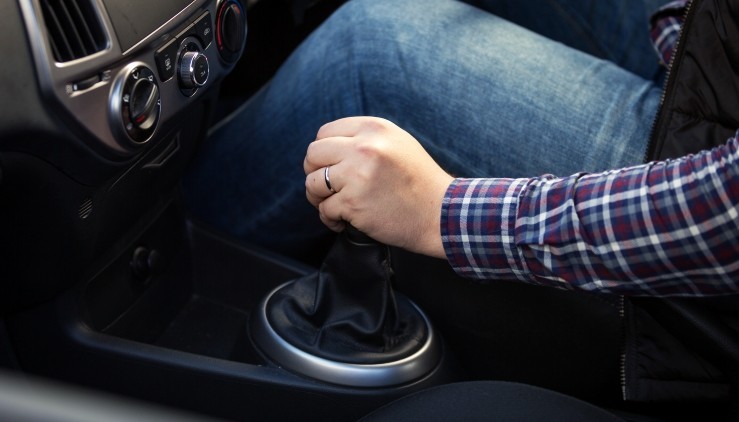
Stay in a low gear in order to keep your revs high – thereby helping to prevent water from collecting in your exhaust, which can damage the catalytic converter.
Shorted out electrics
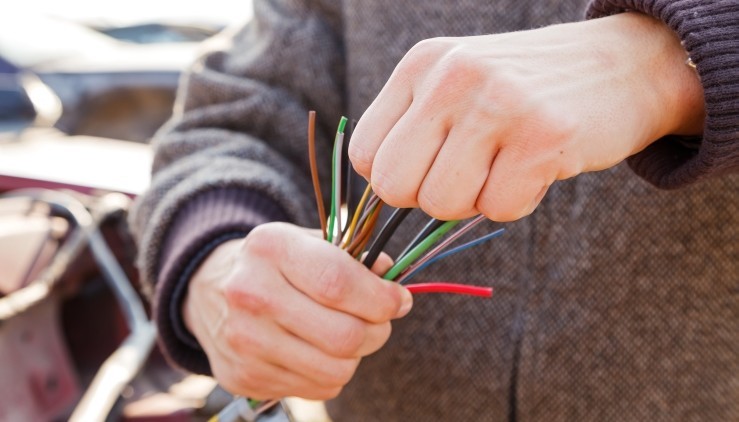
Driving through water may also short out electrics on petrol cars – another good reason to avoid it.
Driving through fords
Be aware that depth and speed of water over fords can vary depending on the weather.
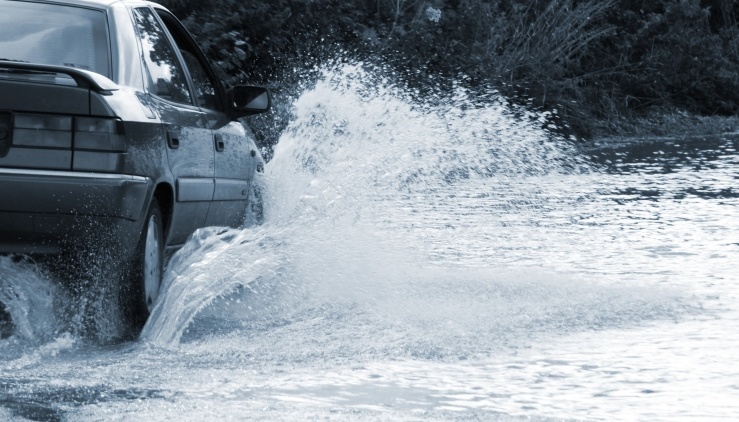
Floods and standing water – remember:
- Do not drive into moving water
- Do not drive into water deeper than 10cm (4 inches)
- Avoid fast-moving water in particular, such as might collect at the approaches to a flooded bridge.
- Keep your speed down and avoid standing water where possible
Why is it dangerous to drive through standing water?
- Danger of aquaplaning – whereby your tyres lose their grip.
- It is inconsiderate – splashing pedestrians and cyclists is viewed dimly by the police, who may levy a large fine and between 3-9 points if they feel you have been driving without due consideration to other road users.
- If water enters your engine through an air intake it could lead to a hefty repair bill. Diesel and turbo-charged engines are especially susceptible.
Driving in heavy rain
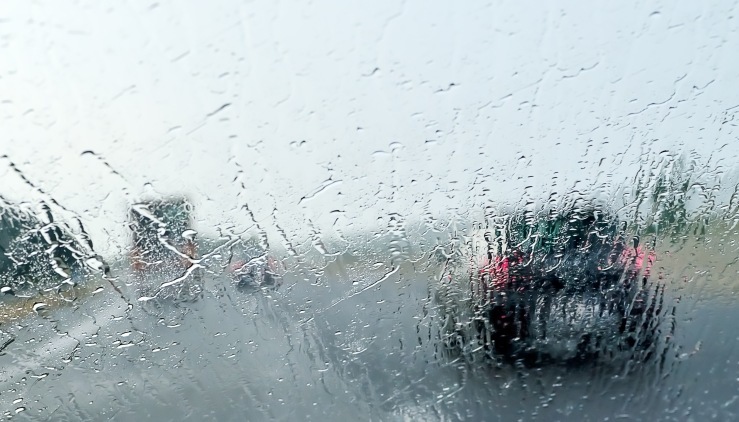
- Rain can adversely affect visibility, so be sure to use your headlamps. According to the Highway Code if you cannot see more than 100m you should switch your headlights on.
- In low visibility it is acceptable to use front and/or rear fog lights, but remember to turn them off as soon as visibility improves.
- Replacing worn windscreen wipers can help improve visibility.
- Leave double the normal distance between you and the vehicle ahead. Stopping distances increase in wet conditions.
- If your steering is adversely affected by the rain, ease off the accelerator and gradually reduce speed.
Flood facts: Floods and driving
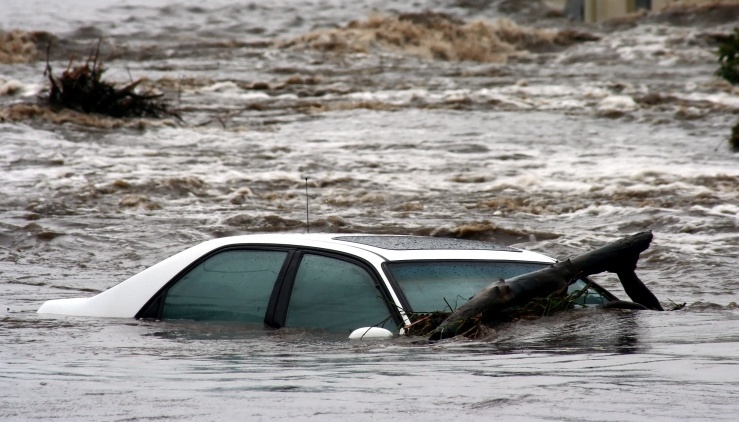
- 32 per cent of flood-related drownings occur in a vehicle
- If the speed of moving water doubles, the force exerted on a vehicle quadruples
- Your car could float in just two feet of standing water
- The average car could be moved by just one foot of flowing water
- Just a few tablespoons of water in a combustion chamber can cause irreparable damage to an engine.
Stay safe in the floods
A little fore-knowledge and presence of mind can reduce the risk of having to call out your car breakdown provider – and eliminate the possibility of a hefty repair bill, or an insurance claim.




